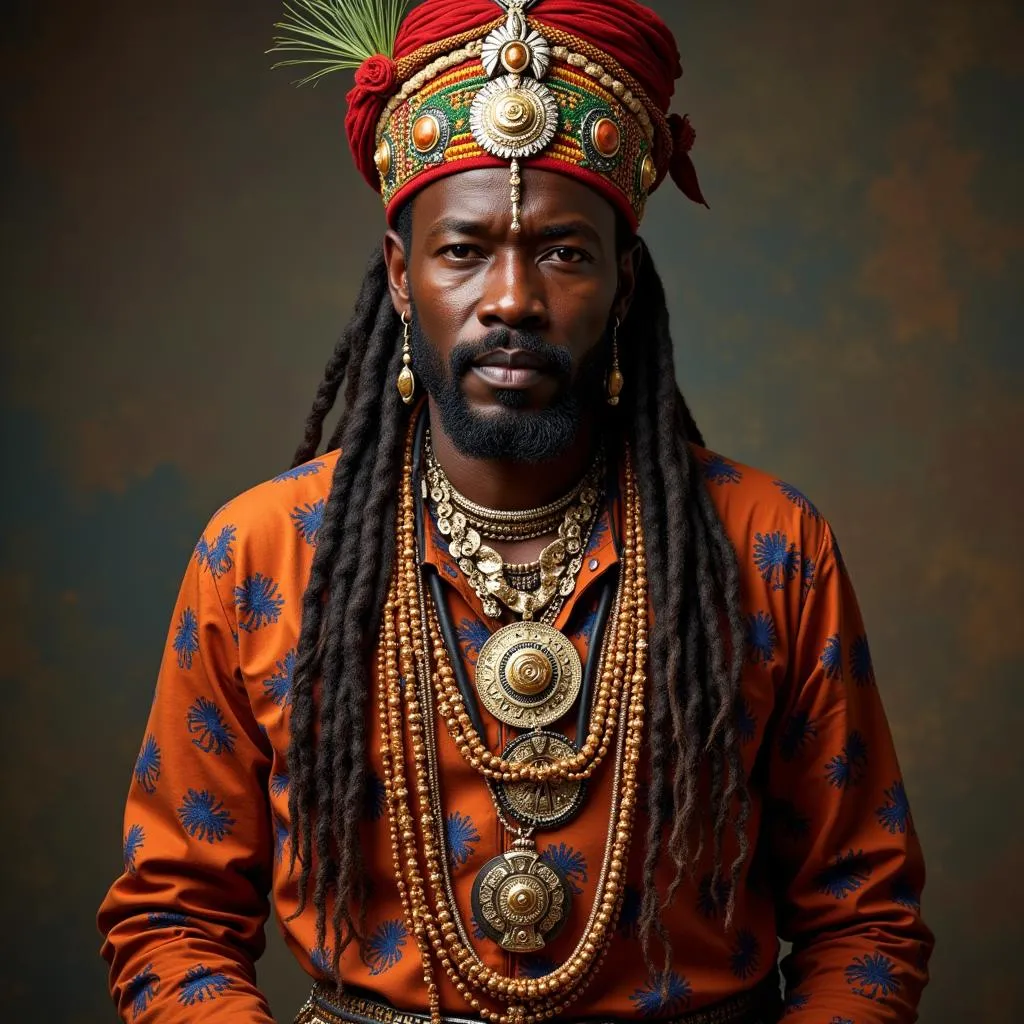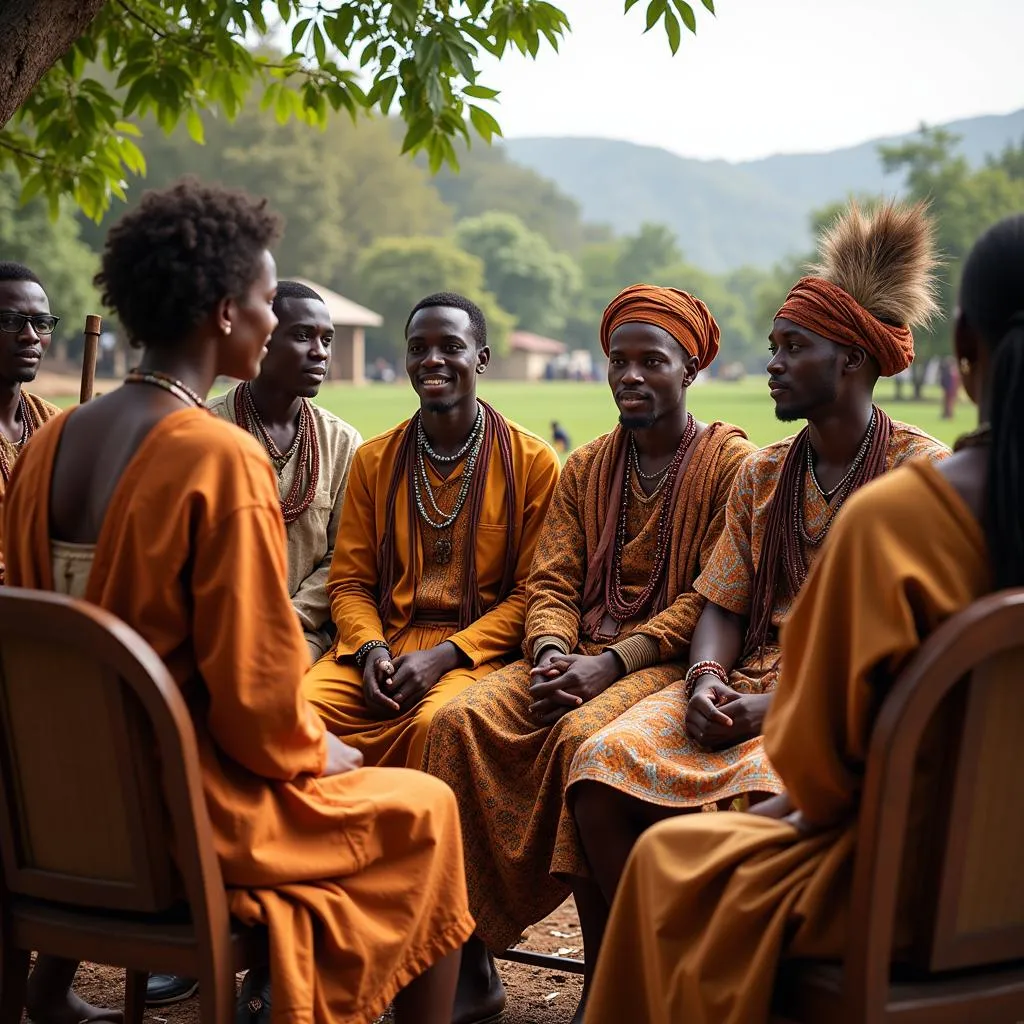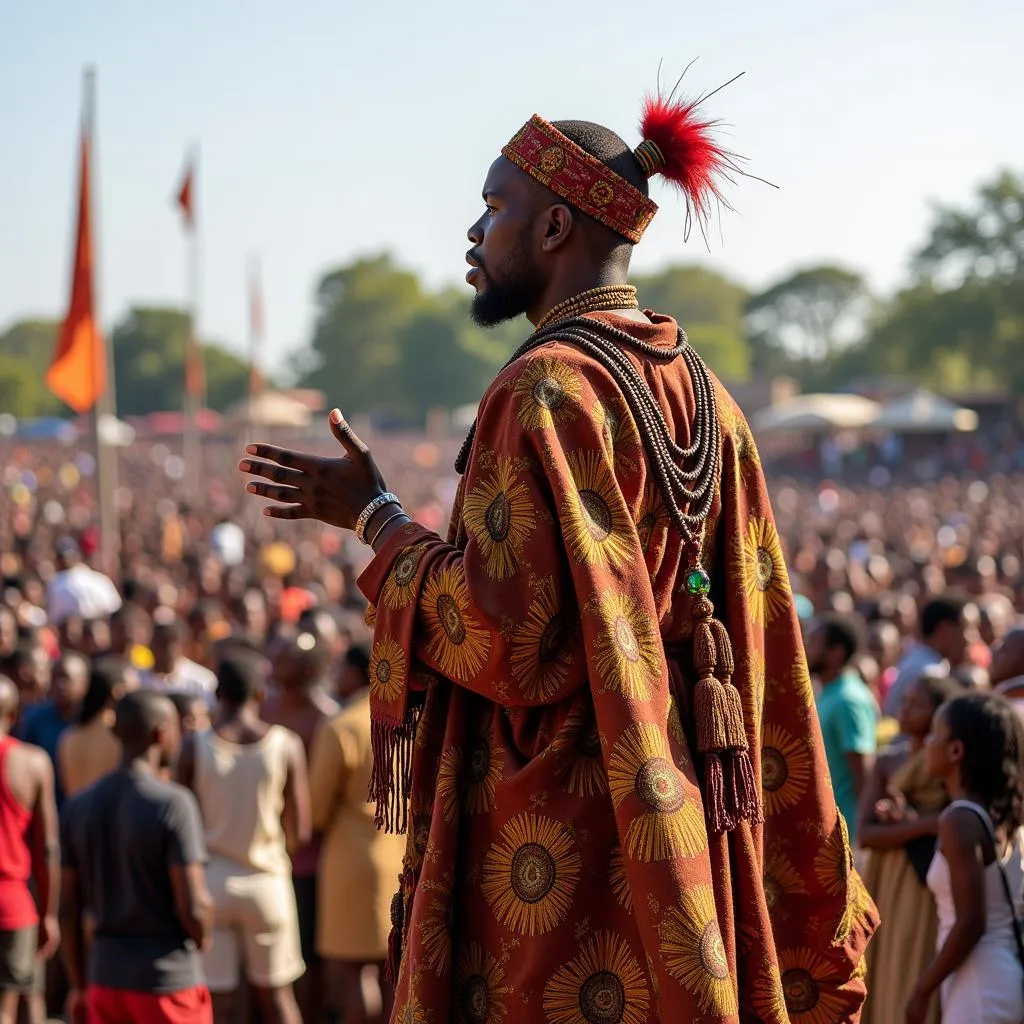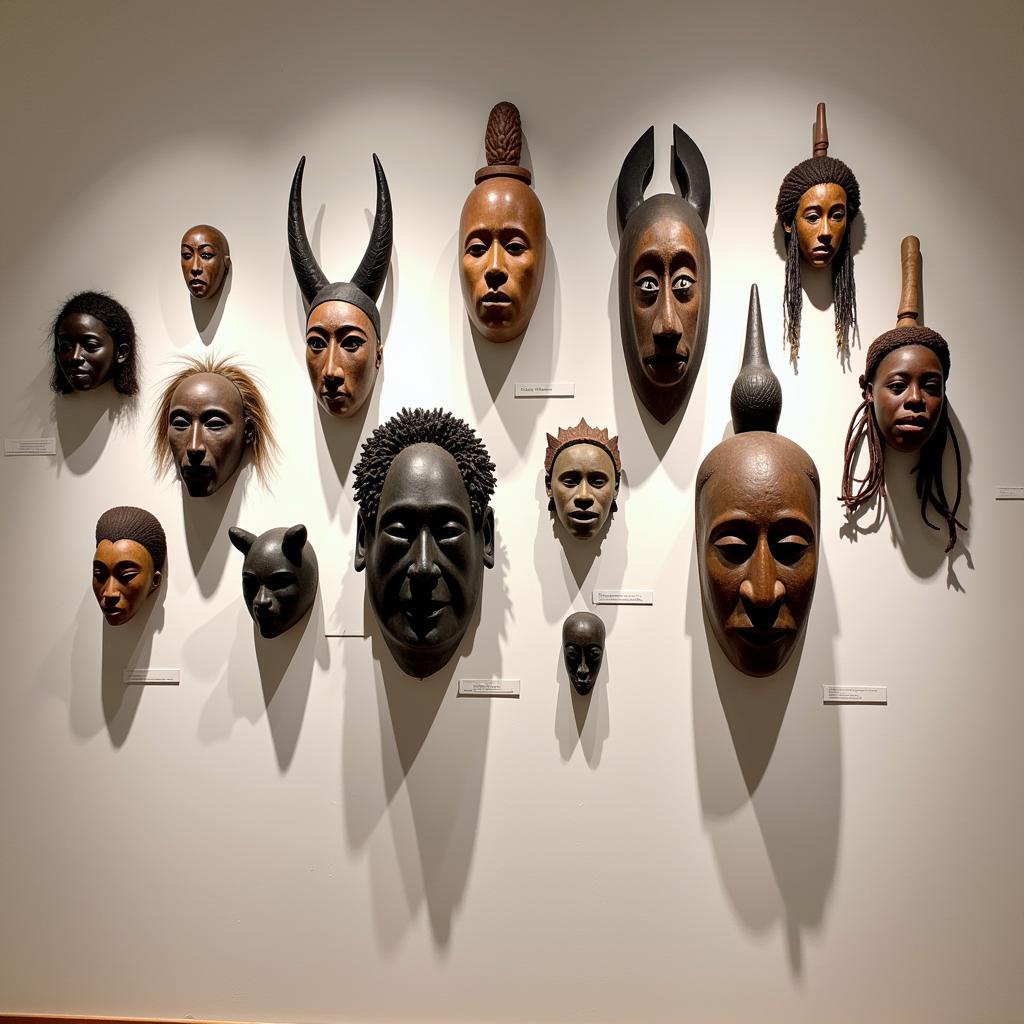African Chieftains: Guardians of Culture and Tradition
African chieftains, often referred to as traditional rulers, hold a position of immense respect and authority within their communities. They are the custodians of culture, the arbiters of justice, and the symbols of unity and continuity in a continent rich in history and tradition. From the sprawling savannahs of the Maasai to the lush rainforests of the Congo Basin, chieftains continue to play a vital role in shaping the social, political, and spiritual fabric of African societies.
The Historical Significance of African Chieftains
The chieftaincy institution in Africa predates colonialism, with roots that stretch back centuries. These leaders were not merely figureheads but wielded significant power, often inheriting their positions through lineage or through remarkable feats of strength, wisdom, or spiritual insight. They presided over vast territories, commanded armies, enacted laws, and regulated trade.
 African chieftain adorned in traditional regalia
African chieftain adorned in traditional regalia
Examples abound across the continent. The Ashanti Kingdom in modern-day Ghana was ruled by powerful Asantehenes, while the Zulu Kingdom, under the legendary Shaka Zulu, rose to prominence in the 19th century. In West Africa, the Oyo Empire, with its sophisticated administrative structure, and the Benin Empire, known for its exquisite bronze castings, stand as testaments to the power and influence of African chieftains.
Roles and Responsibilities of Modern Chieftains
While the arrival of colonialism and the subsequent establishment of modern nation-states have inevitably altered the dynamics of traditional leadership, African chieftains continue to play a critical role in contemporary Africa. They are the bridge between the past and the present, upholding customs, resolving disputes, and representing the interests of their people.
Chieftains are often called upon to mediate land disputes, settle family feuds, and oversee traditional ceremonies such as marriages and funerals. Their wisdom, drawn from years of experience and deep understanding of local customs, is highly valued. Moreover, they act as advocates for their communities, engaging with government agencies and development organizations to promote education, healthcare, and economic empowerment.
 African chieftains engaging with community members
African chieftains engaging with community members
The Evolving Role of Chieftains in a Changing Africa
In a rapidly changing Africa, chieftains are adapting to new realities. They are increasingly embracing technology, using mobile phones and social media to connect with their constituents, disseminate information, and advocate for their communities. Many are also working to bridge the gap between traditional values and modern governance, promoting peace and reconciliation, and advocating for sustainable development.
“Chieftaincy is not about clinging to the past,” says Chief Ndume, a prominent traditional ruler in Tanzania. “It’s about adapting to the present and shaping the future. We must leverage our influence to empower our people and ensure that development benefits everyone.”
The Importance of Preserving Chieftaincy in Africa
The institution of chieftaincy is facing challenges in some parts of Africa, as land tenure systems evolve, urbanization increases, and younger generations seek alternative forms of leadership. However, it remains a vital force for stability, cultural preservation, and community development.
 African chieftain addressing a large gathering
African chieftain addressing a large gathering
By supporting the role of traditional leaders, empowering them to address contemporary challenges, and integrating their wisdom into modern governance structures, African nations can harness the power of chieftaincy to foster inclusive development, preserve their rich cultural heritage, and build a prosperous future for all.
Conclusion
African chieftains represent a unique and enduring aspect of the continent’s cultural landscape. They are the living embodiment of history, tradition, and values, and their continued relevance in modern Africa speaks volumes about their ability to adapt and evolve. By understanding and supporting the role of African chieftains, we can contribute to the preservation of these vital cultural institutions and the betterment of African societies.

